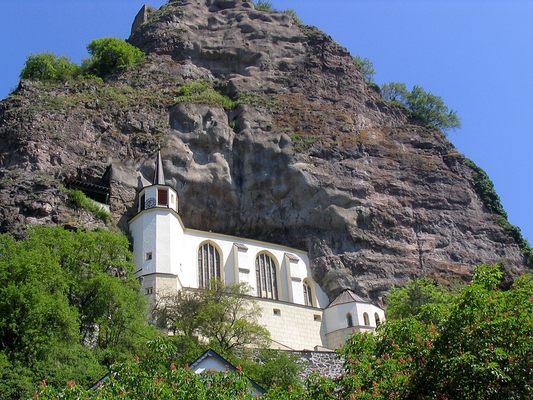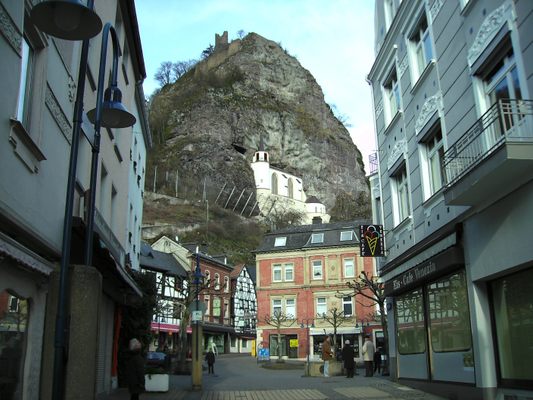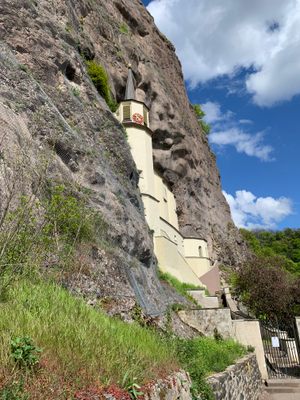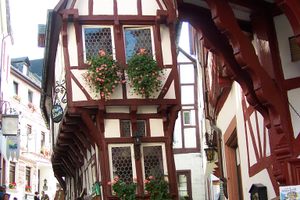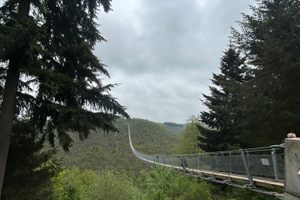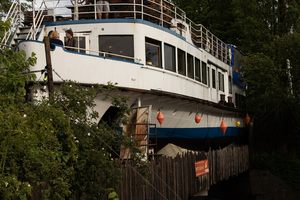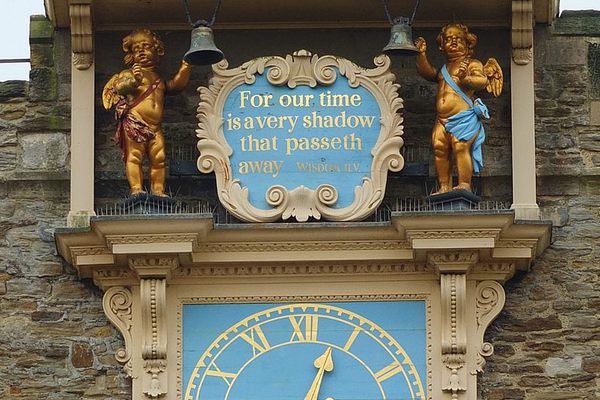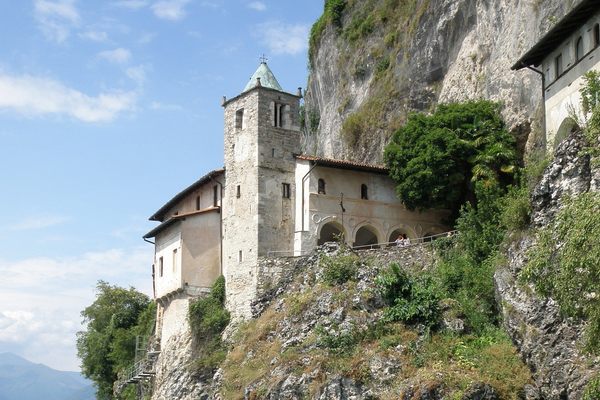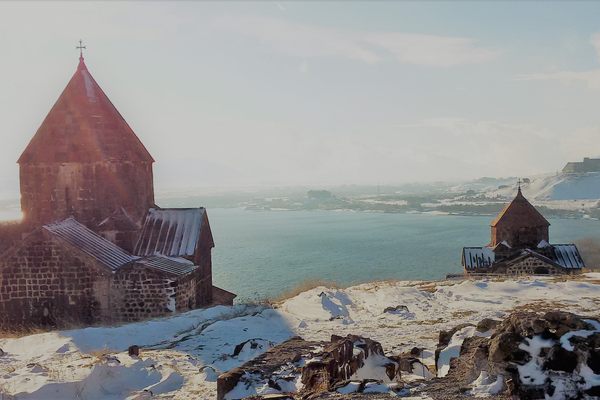About
According to legend, this unique cliffhanging chapel, known as the Felsenkirche (also called "Chapel-in-the-Rocks" and “Crag Church”), was built to atone for the murder of a prince by his jealous brother.
Supposedly, Wyrich and Emich, two brothers who lived in the castle atop of the cliff, were both in love with a beautiful woman named Bertha, each unaware of the other's affections for her. When Wyrich was away, Emich married the object of the their affection. Upon the jilted brother’s return, he launched his successful rival from a castle window in a fit of rage. In penitence for his crime, Wyrich singlehandedly excavated the Felsenkirche's cavern on the spot where his dead brother’s body had been found, 165 feet below the castle.
Sadly for fans of medieval romanticism, there is no historical evidence for the legend. The reality of the cave’s natural formation is no less surprising though. Here, high above the town, a vigorous bubbling spring bursts out of the cliff. Over time, this spring eroded the cavern in which the small yet dominating church was erected in 1484, possibly on the site of a previous fortification or place of worship.
This natural spring now bubbles away inside the building. There’s also a crucifix made of naturally grown agate, a Gothic baptism stone, and a historic organ that dates to 1756. As the church is 230 steep steps and a short tunnel away from the little town below, worshippers at the Idar-Oberstein Felsenkirche must surely be some of Germany's fittest churchgoers.
Related Tags
Know Before You Go
The only way to the Felsenkirche is 165 feet and 230 steps up from the market place of Idar-Oberstein. The town, surprisingly the birthplace of Bruce Willis, is also worth a visit, with plenty of locally-mined gemstones on offer, and the German Gemstone Museum.
Published
September 13, 2017

